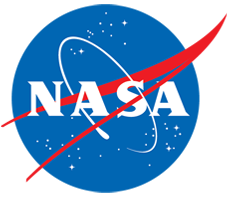O Really wrote: ↑Sun Dec 08, 2024 11:45 amSo yesterday we went hiking at 5,500 ft. Palomar State Park, also home of the Palomar Observatory. https://sites.astro.caltech.edu/palomar/about/
Totally cool trip - beautiful clear day, great views, 65ish even on the mountain. The observatory is open to the public to go in and see the telescope, and it's huge. At about 16ft across, it was the largest in the world when it was first put in use in 1949 after about 10 year in building, but newer ones now are about twice its size. Interesting trivia - the first person to use it was Edwin Hubble, yes that Hubble.
https://upload.wikimedia.org/wikipedia/ ... ped%29.JPG
The Science Thread!
- Vrede too
- Superstar Cultmaster
- Posts: 59894
- Joined: Fri Apr 03, 2015 11:46 am
- Location: Hendersonville, NC
Re: The Science Thread!
Lament the murder, not the murdered.
1312. ETTD. 86 47.
1312. ETTD. 86 47.
- Vrede too
- Superstar Cultmaster
- Posts: 59894
- Joined: Fri Apr 03, 2015 11:46 am
- Location: Hendersonville, NC
Re: The Science Thread!
Brain drain  :
:

It's like scavengers picking over the science carcass that DOGE has left behind.Scientists have lost their jobs or grants in US cuts. Foreign universities want to hire them
As the Trump administration cut billions of dollars in federal funding to scientific research, thousands of scientists in the U.S. lost their jobs or grants — and governments and universities around the world spotted an opportunity.
The “Canada Leads” program, launched in April, hopes to foster the next generation of innovators by bringing early-career biomedical researchers north of the border.
Aix-Marseille University in France started the “Safe Place for Science” program in March — pledging to “welcome” U.S.-based scientists who “may feel threatened or hindered in their research.”
Australia’s “Global Talent Attraction Program,” announced in April, promises competitive salaries and relocation packages.
“In response to what is happening in the U.S.,” said Anna-Maria Arabia, head of the Australian Academy of Sciences, “we see an unparalleled opportunity to attract some of the smartest minds here.”
... Australia’s “Global Talent Attraction Program,” announced in April, promises competitive salaries and relocation packages.
“In response to what is happening in the U.S.,” said Anna-Maria Arabia, head of the Australian Academy of Sciences, “we see an unparalleled opportunity to attract some of the smartest minds here.”
... Already, several universities have announced hiring freezes, laid off staff or stopped admitting new graduate students. On Thursday, the Trump administration revoked Harvard University’s ability to enroll international students, though a judge put that on hold.
Research institutions abroad are watching with concern for collaborations that depend on colleagues in the U.S. — but they also see opportunities to potentially poach talent.
“There are threats to science ... south of the border,” said Brad Wouters, of University Health Network, Canada’s leading hospital and medical research center, which launched the “Canada Leads” recruitment drive. “There’s a whole pool of talent, a whole cohort that is being affected by this moment.”
Promising a safe place to do science
Universities worldwide are always trying to recruit from one another, just as tech companies and businesses in other fields do. What's unusual about the current moment is that many global recruiters are targeting researchers by promising something that seems newly threatened: academic freedom.
European Commission President Ursula von der Leyen said this month that the European Union intends “to enshrine freedom of scientific research into law.” She spoke at the launch of the bloc's “Choose Europe for Science” — which was in the works before the Trump administration cuts but has sought to capitalize on the moment.
Eric Berton, president of Aix-Marseille University, expressed a similar sentiment after launching the institution’s “Safe Place for Science” program.
“Our American research colleagues are not particularly interested by money," he said of applicants. "What they want above all is to be able to continue their research and that their academic freedom be preserved."
Too early to say 'brain drain'
... But some institutions abroad are reporting significant early interest from researchers in the U.S. Nearly half of the applications to “Safe Place for Science” — 139 out of 300 total — came from U.S.-based scientists, including AI researchers and astrophysicists.
U.S.-based applicants in this year’s recruitment round for France’s Institute of Genetics, Molecular and Cellular Biology roughly doubled over last year.
At the Max Planck Society in Germany, the Lise Meitner Excellence Program — aimed at young female researchers — drew triple the number of applications from U.S.-based scientists this year as last year....
Community ties
... Marianna Zhang was studying how children develop race and gender stereotypes as a postdoctoral fellow at New York University when her National Science Foundation grant was canceled. She said it felt like “America as a country was no longer interested in studying questions like mine.” ...
A global vacuum
... “The U.S. was always an example, in both science and education,” said Patrick Schultz, president of France's Institute of Genetics, Molecular and Cellular Biology. So the cuts and policies were “very frightening also for us because it was an example for the whole world.”
Lament the murder, not the murdered.
1312. ETTD. 86 47.
1312. ETTD. 86 47.
- Vrede too
- Superstar Cultmaster
- Posts: 59894
- Joined: Fri Apr 03, 2015 11:46 am
- Location: Hendersonville, NC
Re: The Science Thread!
Lament the murder, not the murdered.
1312. ETTD. 86 47.
1312. ETTD. 86 47.

